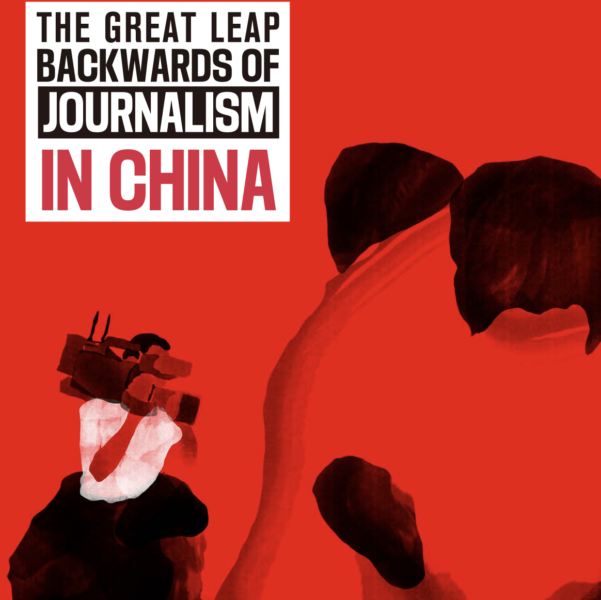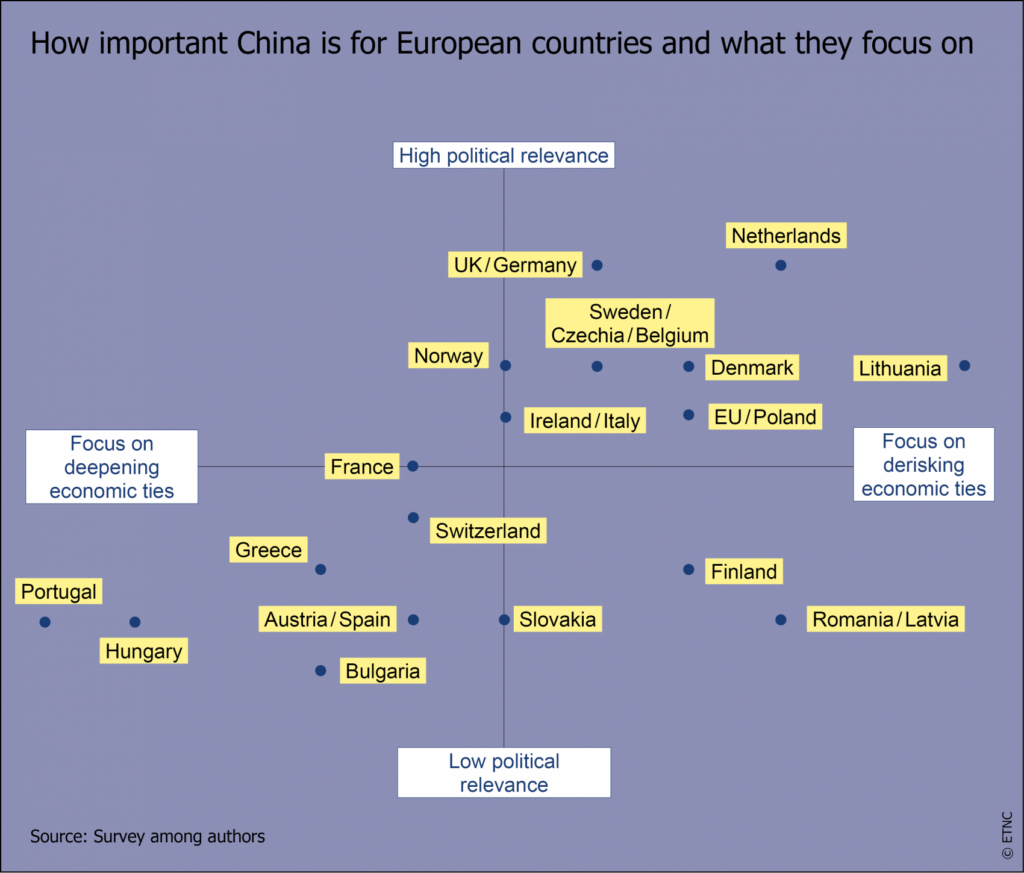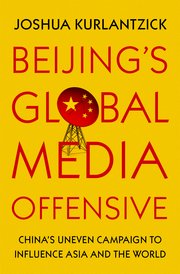
Ten years after Xi Jinping took the helm in China, Europe’s democracies have become more aligned on how to deal with Beijing, according to a new analysis. However, approaches towards the aspiring world power vary depending on the intensity of relations, the extent and nature of economic dependence as well as attitudes towards the authoritarian government, say the authors of From a China strategy to no strategy at all: Exploring the diversity of European approaches.
Some European countries have devised national China strategies, some prefer a less public, more decentralized approach, others do not consider China an important issue for their national politics. National approaches and their evolution in recent years are laid out in the country chapters of the report from the European Think-tank Network on China (ETNC), comprising 22 European think tanks and research institutions.

China is using academic joint ventures to project sharp power, seeking to counter democratic ideas while promoting ideological conformity.
Chongqing University of Education (which has numerous foreign partnerships) instructed that Chinese teachers and students in joint-venture arrangements should “consciously resist corrosion by all kinds of erroneous Western thoughts and decadent ideas”, The Economist reports.
There have been ominous remarks, too, by Chinese staff in joint ventures. In 2021 a party official at the University of Liverpool’s wrote that party committees should make sure no one with “ideological problems” is appointed to faculty. They should “resolutely stop the spread of erroneous thinking”.
 In early 2022, Reporters Without Borders (RSF) published a report called “The Great Leap Backwards of Journalism in China,” an ironic reference to Mao’s Great Leap Forward that, in 1958–1962, eventually led to massive starvation and millions of deaths, notes Global Voices.
In early 2022, Reporters Without Borders (RSF) published a report called “The Great Leap Backwards of Journalism in China,” an ironic reference to Mao’s Great Leap Forward that, in 1958–1962, eventually led to massive starvation and millions of deaths, notes Global Voices.
“It is absolutely untrue to claim that Chinese people all support the CCP, that they don’t complain as long as there is economic growth,” said Cédric Alviani, head of RSF’s Taiwan-based office for East and Southeast Asia. “Despite punishment becoming harsher, and the high risk of losing their jobs, people do protest. We saw it with the outbreak of COVID-19, and in late 2022 with the White Paper movement that was leaderless and spontaneous. The government gave up their ‘zero-Covid‘ policy almost overnight, realizing how dangerous that movement was for their grip on power.” RTWT
 A new educational app for China’s journalists, introduced on June 30th, makes it clear that the party comes first, The Economist adds. One hour-long tutorial is titled “Ensure that the politicians run the papers, the magazines, the tv stations and the news websites”. Another talks about how to “correctly guide public opinion”. “It’s like a drumbeat,” says David Bandurski of the China Media Project. “They want to remind them that the party is in control.”
A new educational app for China’s journalists, introduced on June 30th, makes it clear that the party comes first, The Economist adds. One hour-long tutorial is titled “Ensure that the politicians run the papers, the magazines, the tv stations and the news websites”. Another talks about how to “correctly guide public opinion”. “It’s like a drumbeat,” says David Bandurski of the China Media Project. “They want to remind them that the party is in control.”
For over a decade, the Chinese Communist Party (CCP) has sought to expand its influence operations in Central and Eastern Europe, including in the information space, with varying degrees of success, the Center for European Policy Analysis adds. Its efforts appear to have had more success in the Balkans, where China has successfully exploited gaps that others, particularly the European Union, have failed to address. Countries with strong civil societies or more robust international support, such as in the Baltics, have appeared better equipped to identify and mitigate malign foreign influence strategies.
How are the CCP’s tactics evolving, why has the impact of these influence operations varied, and how can democracies more effectively counter disinformation and propaganda?
How do China’s influence operations vary across Central and Eastern Europe?
Speakers:
Martin Hála, Founder and Director, Sinopsis
Ana Krstinovska, Founder and President, ESTIMA
Edward Lucas, Senior Fellow and Senior Adviser, Center for European Policy Analysis
Ellie Young, Research Analyst for China, Hong Kong, and Taiwan, Freedom House
Moderated By: Kevin Sheives, Deputy Director, International Forum for Democratic Studies, National Endowment for Democracy (NED).







